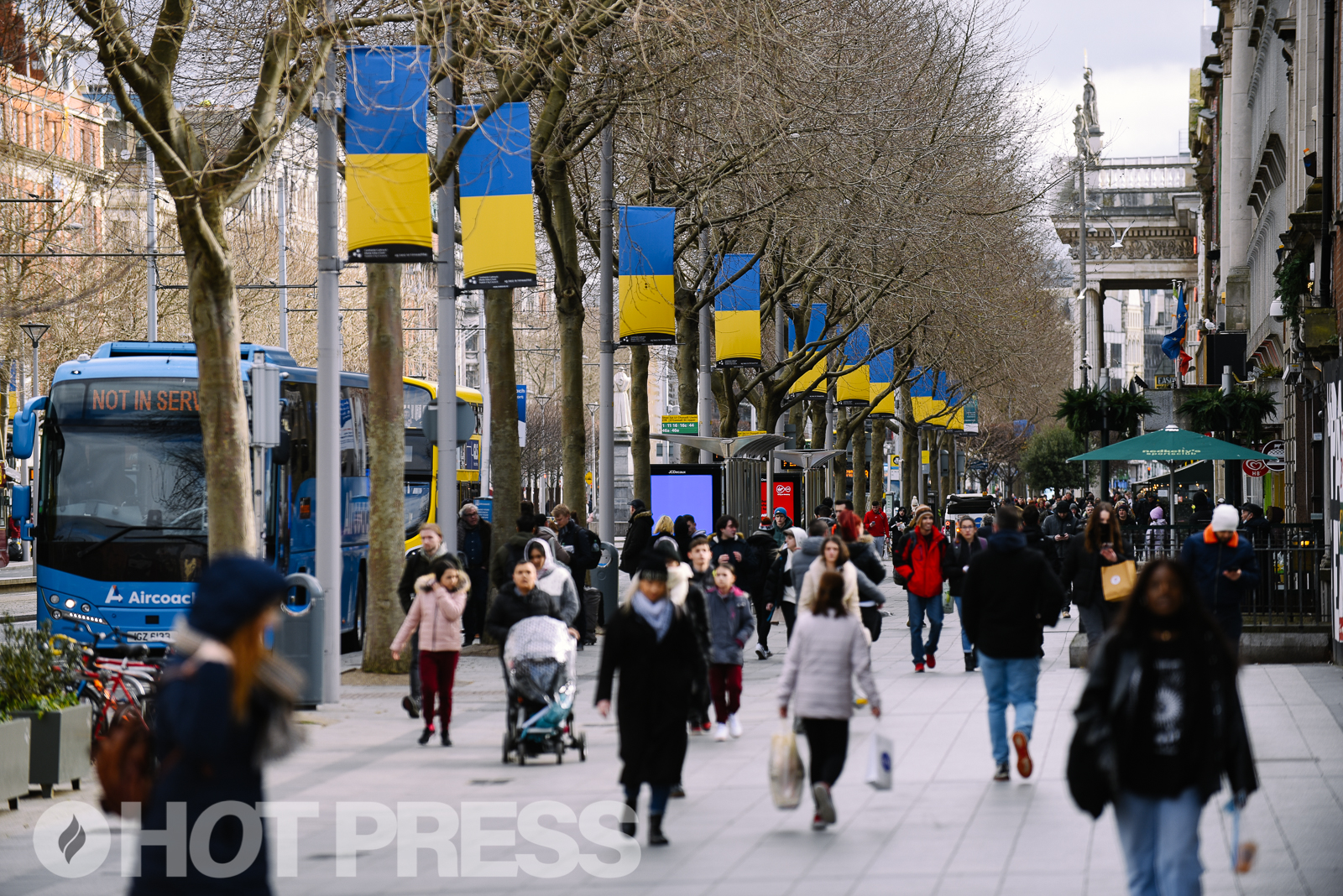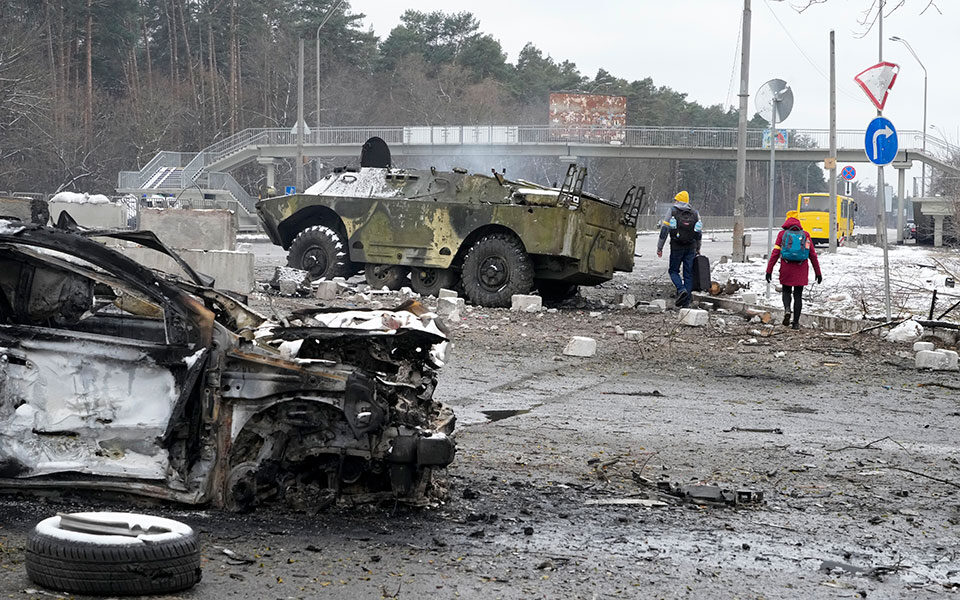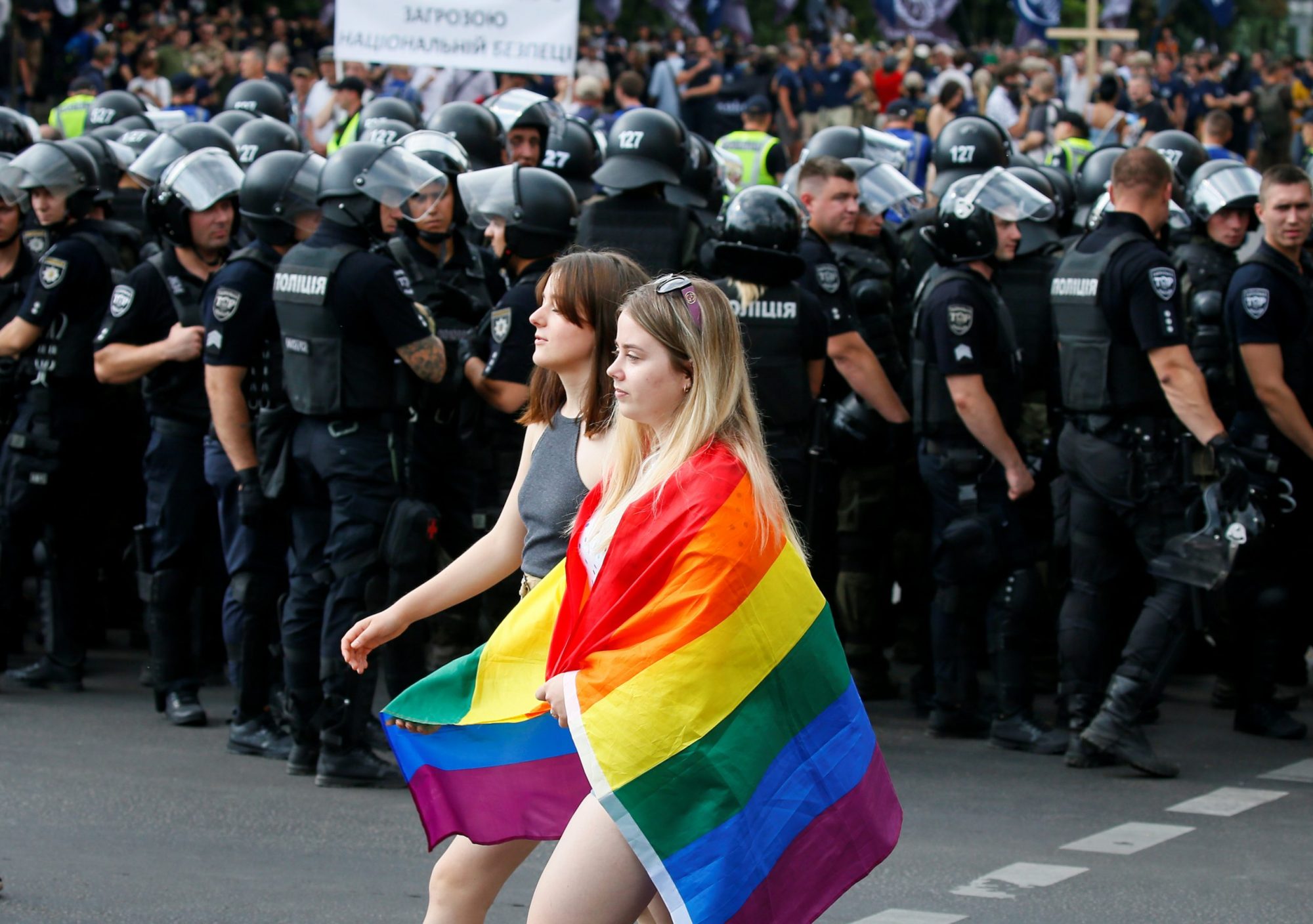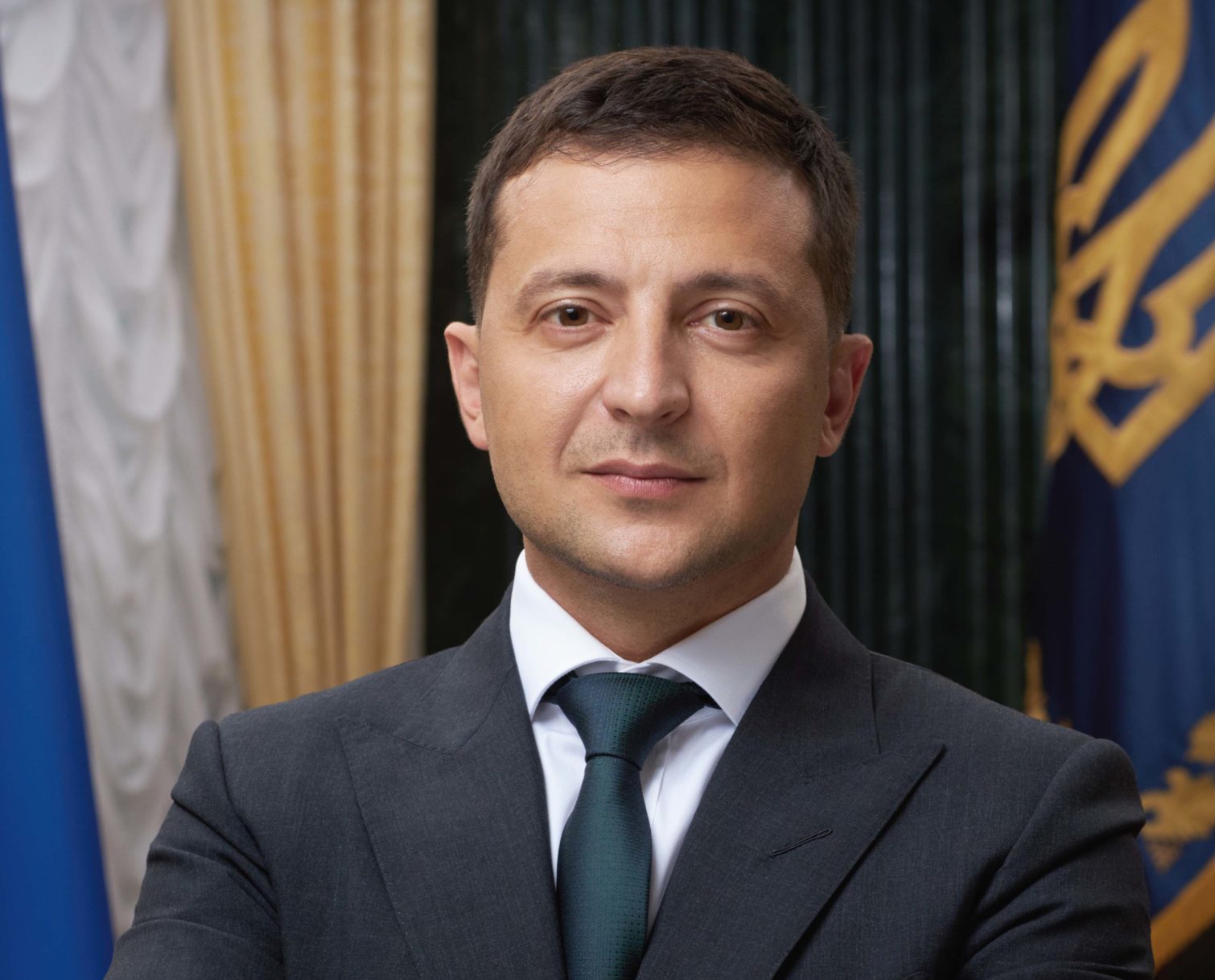- Lifestyle & Sports
- 16 Mar 22
Ukraine Invasion - Steven ‘Sehii’ Marious: "Ukrainian people would rather die fighting for their land than live in captivity"

Steven Marious of On Point Worldwide Records was getting ready to move to London with his partner in musical adventure, and in life, when the Russian army commenced its invasion of Ukraine. Now he is trapped in a war zone, a young LGBTQ+ man, doing what he can to help, while also fearing for the lives of his fellow Ukrainians across the country. As war rages around him, music has had to take a back seat, prompting the question: will Ukraine ever taste real freedom again?
Originally from Ukraine, Steven ‘Sehii’ Marious runs On Point Worldwide Records, with his partner Nayla. The label was founded while they lived in Vietnam. The couple had been planning to relocate to the UK – until war crashed down on Ukraine, scuppering their immediate intentions.
Steve is currently in Lviv, in Western Ukraine, watching the destruction that is being visited on his homeland in sheer horror.
Lviv has been deemed a ‘safer’ part of the country – but any definition of safety has been upended disastrously in the two appalling weeks since Russia invaded Steven’s birthplace. In what seems like a mood of increasing desperation, the Russian President, Vladimir Putin, has upped the ante dangerously and begun to shell the area close to the Polish border. It may yet prove a provocation too far for NATO.
The future of more than Ukraine may be in the balance. At the moment, it seems that Putin is gambling on a certain weakness – or lack of resolve – among NATO countries. The problem is that the longer they give him latitude, the more aggressive his actions are likely to become. At what point do you definitively declare: thus far and no further? That remains to be seen. Putin’s war might yet spiral further out of control.
Whatever the future holds, right now, Steven Marious looks visibly tired. He spends every waking moment, more or less, watching the dread-inducing news cycle. Understandably, his work in the music industry has been put to one side.
“My English partner and I used to live in Vietnam,” he explains. “We came to Ukraine to sort out my documents, because we’re getting married in his homeland. We only moved here a couple weeks before the war began, and we were supposed to leave Ukraine the day everything started. When tensions got worse, I started to get scared that it would be much more difficult to leave central Kyiv, especially with our husky. So we travelled to Lviv.
“Most of the Ukrainian population is in this part of the country now,” he adds. “Mothers, kids, and older people – in general, people who are not capable of fighting – are passing through on the way to other European countries. It’s not safe to be in any city outside of the west zone. Things are alright here, for now. Hopefully it will stay that way.”
Everywhere there are personal tragedies: stories that highlight the reality of what war does to individuals and families.
“A lot of my female friends managed to escape either to Europe or to Western Ukraine,” Steven tells me. “But my stepdad’s family was living in one of the shelled areas. One of the rockets hit inside their building. They’re safe for now – but, again, my stepdad had to leave his father in a hospital to die, because he’s too old to travel anywhere. He can’t walk or be in the car. His mother is somewhere in Western Ukraine, but had a stroke because of all the stress.”
USING CHEMICAL WEAPONS
 Ukrainian flags wave in Dublin to support the people of Ukraine. Copyright Miguel Ruiz.
Ukrainian flags wave in Dublin to support the people of Ukraine. Copyright Miguel Ruiz.Is there a risk that Steven might be conscripted? And if that were to happen, how would he react?
“Technically I’m not allowed to be in the army,” Steven says. “I’m bipolar, I have ADD and uncontrolled panic attacks. In fact, I’m missing the medicine that was helping me stabilise my mood. If there was a gun in my hands I would probably pass out – it’s just uncontrollable, what happens to me. I don’t want to disrespect my country, but I can’t do that right now. It takes a lot of courage to go to the frontlines of a battle to protect your land.” He isn’t the only one to be confronted with the possibility of being dragooned into action.
“My mom has a friend whose son cannot walk 50 metres without a wheelchair, but because they are from Crimea, they turned him around when he was trying to leave Ukraine,” he says. “They said, ‘He’s twenty-years old. You need documents that say he cannot fight’. Due to the isolation of Crimea, it’s a near-impossible situation where you have to re-register yourself as a Crimean refugee in Ukraine – and then go to the military hospital and do all of these things. Something that would be quite difficult to do normally is just not possible at all now. It’s incredibly scary.”
Has Steven any sense of what lies ahead for the people of Ukraine?
“The two armies are fighting for totally different things. Russians are coming here not really knowing what they’re actually battling for, committing unbelievable atrocities like bombing a maternity hospital where 17 people were injured and three died – including a child,” he offers, emotionally. “With the Ukrainian army, more than 200,000 men came from overseas to join. Ukrainian people have got so much to fight for. I believe, with help from the West, that the Ukrainian army can win. Putin’s war is to show that the west is not united. That the west only speaks, it doesn’t do anything.
“But looking at how people are ready and able to protect the land, is incredible. They’re not letting the Russians move anywhere towards Kyiv for the last two weeks, which is astonishing. Putin’s people don’t have a clue what they’re doing. He’s just sending them to die.”
That said, as Steven himself acknowledges, things may be about to change drastically.
“Judging by Putin’s regime of war, chemical weapons are a possibility,” he adds. “He messed up in many ways, and on levels he did not expect – he knows that. Russian people are slowly waking up, I hope. I don’t think it’ll come to nuclear weapons because that is a suicide mission. That is suicide for Putin and for Russia. A nuclear attack doesn’t just come from him, it also comes from his generals. When it comes to this last resort, I just hope there are some sane minds still left.
“Chemical weapons are what they’ve used in Syria, many times. I really hope it’s not going to come to that, but anything is possible. I was in Kharkiv five days before it all started. All of that city is destroyed now, including landmarks built when it was part of the USSR. All of that was created together. It’s all destroyed.”
However the war pans out, the emotional trauma of bearing witness to such horrors will surely leave a lasting mark on Ukranian people.
“It is really weighing down on me,” Steven says. “Yesterday, I cried when I heard the maternity hospital was bombed because there is a certain ethic to war – even during barbaric times. Bombing buildings and saying, ‘That was the Ukrainian army’ or bombing the maternity hospital and then claiming they had 100 percent information it was a military base – I don’t understand how people can do it.”
But, where using chemical weapons is concerned, Vladimir Putin is not the first. The immortal line given to Colonel Kilgore, played by Robert Duvall, in Apocalypse Now comes to mind: “I love the smell of napalm in the morning.”
CONSCRIPTED KIDS TURN BACK

Working from Vietnam, Steven Marious and his partner had established a bridgehead in the music industry with On Point Worldwide Records. The marketing and event manager in his before-life, Steven is a music nut first, last and always. For the moment, however, his and Nayla’s livelihoods have been turned upside down.
“It’s been affected massively because you can’t really think about music in the same way right now,” Steven says, downcast. “Music is my therapist, music is my remedy to anything – but I find it difficult right now to listen to it. I find it wrong in a way to work on music. It’s the same for my partner. With this situation, it’s discouraging to do anything. Your head isn’t thinking about making tracks or running events. How can you think about putting different sounds together when all your thoughts are about safety?
“The record label has definitely stopped, for now,” he adds. “All of these emotions will be put into music once there is an environment to do so, but no one is working over here right now. Most people had to just run away. Right now, we’re hosting a couple from Kyiv – nineteen year old teenagers. They carried their whole lives in one suitcase. Many Ukranians are trying to volunteer at different shelters, cooking food - anything to help at all. It gives us a sense of purpose.”
This week brought reports of Russian soldiers placing mines in bodies as traps for Ukrainians wishing to bury the dead, and waving white flags of surrender only to shoot at close range. It seems there is no limit to the depravity of the invading forces.
“Even that photo of the family of four killed in Irpin a few days ago,” Steven says, “they were two kids and a mum and dad who were only 20 metres from the bus and they just got shelled, for nothing. That was during half a day of ceasefire, and still this happened. It’s scary. I don’t think even they know some of what they’re doing – conscripted kids who don’t know why they’re fighting at all.
“These things make a big impact. In a way I am trying to shield my emotions because myself and my partner are both anxious people. Letting the fear in won’t lead to a positive scenario. I don’t think I’m shutting it out, I’m just not letting myself process it. The understanding part will probably come over the next year of my therapy.”
STUCK IN OCCUPIED TERRITORIES

Steven’s sexual orientation as an LGBT+ person adds another layer to the story. At the moment, it is all Ukrainians united on the battlefield. However, if Russia occupied the country, there’s little doubt that rights for Ukrainian LGBTQ people would collapse.
“In a lot of ways, it’s safe for LGBTQ people in Ukraine. It’s the second home of electronic music in Europe. It was and still will be,” Steven smiles. “It offered a lot of freedom of style and expression. I don’t think people are as massively judgemental as they used to be.
“There are still a lot of horrible people that get violent with you – but those individuals are present everywhere. They aren’t coming from modern society, but from these past Soviet values. I never felt threatened, but myself and my partner aren’t really big into public displays of affection. I don’t believe you have to be a certain way to be a certain gay!”
IGLA-Europe’s 2021 Rainbow Europe Map revealed widespread stagnation on human rights for LGBTI people. In terms of its ‘rights ranking’, Ukraine went down four places from 36 to 40 out of a total of 49 countries, due to the expiration of its Government Action Plan. Russia is in 46th, above only Armenia, Turkey and Azerbaijan.
“Am I scared about Russia’s attitude to queer people?“ Steven ponders. “Yeah. But also, how many gay clubs are there in Moscow? Plenty. Things are usually only censored in Russia if they are anti-government. Unless you are going to go around and scream about it, being gay probably won’t have much impact on your life.”
For the moment, it is all about bonding with the greater Ukraine body politic.
“We’ve got people representative of that nightlife, like drag queens, on the battlefield here,” Steven says. “A lot of gay acquaintances volunteered and wanted to fight. This war has showed how united Ukrainians are. What I saw over the past year is that queer people in Ukraine actually looked free.
“Whatever the Russian regime will become – I don’t think LGBTQ will be their first priority, because there will still be 44 million people who will never agree to be under Putin’s regime.”
The ferocity with which Ukrainians have defended their sovereignty is often staggering to behold.
“I have massive love for Ukrainian people,” Steven beams. “I remember there was a video with Russian tanks of young conscripts, only aged about 20 or 21. While they were coming in, the whole city was waiting for them screaming, ‘We don’t want you here’. I will never forget: there were three Russian soldiers sitting on the tank looking at each other in utter confusion. Putin had told them that they’d be hailed as liberating heroes. They just stopped, turned around and left.
“Ukranians have been fighting for their land for 600 years,” he adds. “Not just 30 years – since before Russia was even created. People would rather die than live in captivity.
“Since 2014, Putin has been upset with Ukrainians because we kicked out his puppet President, Viktor Yanukovych. For Russian people to see this happening was a blow to Putin. The notion that if you’re not happy with the regime you can take everything back into your own hands is terrifying to someone like him. His anger was passive aggressively growing.
“No one will know why this all started, but it seems like this was prepared for a couple of years by Putin,” Steven speculates. “My partner and I knew a month before that we needed to move cities, just in case. I feel like most people weren’t listening to the signs. Even with my friends, I asked if they had a Plan B and none of them wanted to address it or believe that it could happen.
“This passive aggression between Ukraine and Russia has been happening for eight years in the Occupied Territories, but I think people got sick and tired of worrying. They wanted to finally enjoy their lives. It’s absolutely horrible that people are stuck there now. I don’t even think it’s possible to get them out because Russia doesn’t adhere to humanitarian corridors. Our President is trying his best every day to get as many people to safety as possible.”
PUTIN’S BIGGEST MISCALCULATION

In so many ways, the symbolic power of the Ukranian response comes back to one man. Volodymyr Zelenskyy has had an extraordinary rise to the status of national hero. Having started out as a comedian (and the voice of Paddington Bear, bizarrely), he starred in the satirical show Servant of the People from 2015-2019. In it, Zelenskiy portrayed a humble high school history teacher who ascends to the highest office in the land after accidentally going viral.
In 2018, members of the Kvartal 95 production company, who were behind the series, officially formed the Servant of the People political party – and nine months later, Zelenskyy declared his candidacy for the presidency. In an extraordinary case of life imitating art, he went on to defeat then-incumbent Petro Poroshenko in the Presidential election. That result was widely seen as a form of satire in itself – a kind of ‘revenge of the young people’.
“My partner and I used to say, ‘What can Ukraine expect with a stand-up comedian as President?’ but I’ve never been proud of any President in my life until right now,” Steven grins. “It doesn’t matter where you’re from or what you did before, the job of the President is to make sure that the whole country stays united and informed. They have to know that he will give his life for his country.
“I don’t know any leader in the world right now where you can assume that they would do the same. Zelenskyy is not scared, and that’s the best part. He fights for his land with his people. He gives confidence. He was Putin’s biggest miscalculation, because Zelenskyy was born to be the leader. I believe with all my heart that he will survive and will finally get the love he deserves. A week after he was elected, he said people will see him as dirt but later on, they’ll understand him – and after that, they’ll respect him.
“This moment came sooner rather than later. He’s the reason why Ukrainians are still fighting and believe in each other and our army,” he says, passionately. “It’s why they still feel that a bright future is on the cards.
“He refuses to allow us to be divided. Not even by one percent.”
To donate to the Irish Red Cross, click here.
RELATED

- Lifestyle & Sports
- 02 Mar 22
LGBTQ+ fundraiser for Ukraine to take place at the Grand Social this Saturday

- Lifestyle & Sports
- 18 May 21
"Ireland and Palestine share a similar history and struggle": Palestinian Voices - Dr Asad Abushark

- Lifestyle & Sports
- 10 Dec 20
Hot Press Gift Guide: PADDINGTON'S POSTCARDS from UNICEF
RELATED

- Lifestyle & Sports
- 19 Dec 25
Tullamore D.E.W. Distillery: Gift an experience that engages every sense

- Lifestyle & Sports
- 15 Dec 25
Bohemian FC and KNEECAP team up for new jersey fundraising for ACLAÍ Palestine

- Competitions
- 12 Dec 25
WIN: Lunch For Two From Forge Wood Fired Pizza

- Lifestyle & Sports
- 12 Dec 25
Minding Creative Minds to hold December meet and greet

- Lifestyle & Sports
- 10 Dec 25


